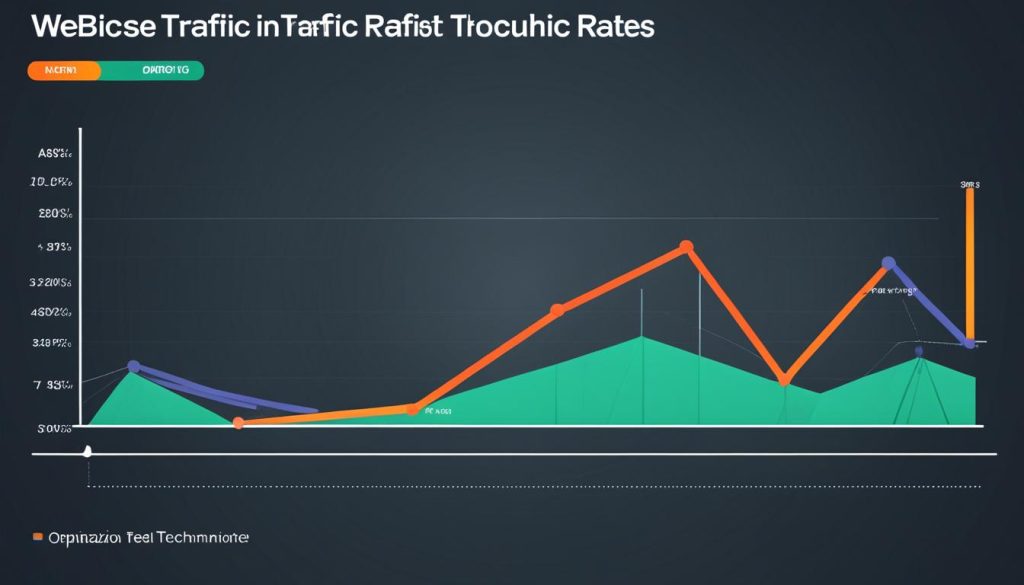At first glance, affiliate marketing might seem overwhelming, however, with the right strategies, it’s possible to significantly increase your income and attain remarkable success. If you’re a newcomer or looking to improve your current website, ensuring your site is fully optimized is key to achieving exceptional results. In this guide, we’re going to offer crucial tips and tactics to boost your affiliate marketing website. This advice is incredibly valuable for those looking to make a mark in the competitive arena of affiliate marketing. Explore hidden gems and utilize powerful, unique insights to advance. **Success** is within your grasp, so immerse yourself to uncover groundbreaking secrets for your website. Grasp the significance of taking advantage of this opportunity!
When it comes to affiliate marketing, having a well-optimized website is crucial. By implementing effective affiliate marketing strategies, optimizing your website for search engines, and improving website performance, you can attract more traffic, increase conversions, and ultimately boost your earnings.
From keyword research and on-page SEO to website design and performance optimization, we will cover all the important aspects of affiliate marketing website optimization. By following these tips and techniques, you can ensure that your website stands out among the competition and drives high-quality traffic to your affiliate offers.
Key Takeaways:
- Implement effective affiliate marketing strategies to boost earnings.
- Optimize your website for search engines to attract more traffic.
- Perform thorough keyword research for better targeting.
- Utilize on-page SEO techniques to improve search rankings.
- Optimize website design and performance for a better user experience.
Leveraging Featured Snippet and SERP Features Optimization
Featured Snippets and other SERP features play a crucial role in driving search traffic to your website. By optimizing your content to appear in these valuable spots, you can increase your website’s visibility and attract a larger audience. To effectively optimize for Featured Snippets and SERP features, keep in mind the following strategies:
- Include summary paragraphs: Craft concise and informative summaries that provide direct answers to users’ questions. By presenting your content in a clear and structured manner, you increase the likelihood of being featured in a snippet.
- Answer frequently asked questions (FAQs): Identify common questions related to your target keywords and provide comprehensive answers. This helps search engines recognize the relevance and value of your content, increasing the chances of appearing in a featured snippet.
- Focus on question-based queries: Structure your content to address specific questions users may have. Use headers or subheadings to separate questions and provide detailed answers below each one.
Optimizing for Featured Snippets and SERP features is essential for maximizing your search visibility and increasing organic traffic to your website. By incorporating these strategies into your content creation process, you can attract more users and establish your website as a trusted source of information in your industry.
Featured Snippets and other SERP features can significantly impact your search traffic. By optimizing your content to appear in Featured Snippets, you can increase your website’s visibility and drive more organic traffic.
One of the key benefits of optimizing for Featured Snippets is the potential to attract users’ attention even before they click on your search listing. Additionally, appearing in a snippet can position you as an authoritative source and differentiate your content from competitors in search results. This can result in higher click-through rates and ultimately drive more traffic to your website.
Furthermore, optimizing for question-based queries and FAQs can help you target users who prefer to search using natural language or seek direct answers to their questions. By tailoring your content to address these query types, you can capture the attention of a specific audience segment and increase the relevance of your website in search results.
| Benefits of Featured Snippet Optimization | Actions to Optimize for Featured Snippets |
|---|---|
| Increases search visibility and click-through rates | Include summary paragraphs |
| Positions your website as an authoritative source | Answer frequently asked questions (FAQs) |
| Drives more organic traffic to your website | Focus on question-based queries |
One-Up Your Competitor’s Best Content
An essential aspect of optimizing your affiliate marketing website is conducting a thorough competitor analysis. By studying your competitors’ top-performing content, you can gain valuable insights into their strategies and identify opportunities to outperform them.
Content Optimization
One way to one-up your competitors is by optimizing your content to make it more valuable and appealing to your target audience. Analyze your competitors’ articles and identify any gaps or areas where their content falls short.
Take note of the topics they cover and the advice they provide. Use this information as a starting point to create higher-quality and more actionable content. You can provide additional insights, go into greater detail, or offer unique perspectives to make your content stand out.
Enhancing Your Backlink Profile
Backlinks play a crucial role in search engine optimization and improving your website’s authority. Analyze your competitors’ backlink profiles to identify potential linking opportunities for your website.
Look for websites that have linked to your competitors’ content and reach out to them to showcase your valuable content as well. Building a strong backlink profile can improve your website’s search rankings and help you outrank your competitors in search results.
Improving Content Quality
While researching your competitors’ content, pay attention to the overall quality of their articles. Identify any areas where you can improve the depth and clarity of your own content.
Ensure that your content is well-researched, accurate, and provides practical advice that readers can implement. By consistently delivering high-quality content, you can establish yourself as a trusted resource in your niche and attract more organic traffic.
Quote:
By analyzing your competitors’ content and taking action to improve upon it, you can one-up your competition and position yourself as a leader in your industry.
Remember, staying ahead of your competitors requires continuous analysis and optimization of your affiliate marketing website. By leveraging competitor insights, optimizing your content, enhancing your backlink profile, and providing valuable content, you can outrank your competitors and attract more organic traffic to your website.
Maximizing Content ROI with Better Keyword Research
In the world of affiliate marketing website optimization, keyword research plays a pivotal role in driving organic traffic to your site and maximizing your content’s return on investment. By strategically selecting high-volume keywords that align with your target audience’s search intent, you can significantly boost your blog traffic and stay ahead of the competition.
Understand Search Intent
When conducting keyword research, it’s essential to comprehend the search intent behind each keyword. By understanding the intent, you can tailor your content to provide exactly what users are looking for, improving its relevance and driving higher-quality traffic to your website.
Identify High-Volume Keywords
Using tools like Ahrefs, you can identify high-volume keywords that have the potential to attract a large audience to your site. Look for keywords that have a high search volume but are not overly competitive. This balance will allow you to drive significant traffic while still having a chance to rank highly on search engine results pages.
Analyze Competition
Conduct a thorough competition analysis to identify keywords that your competitors are targeting successfully. This analysis will help you uncover keyword opportunities that may have been overlooked and give you insights into effective content strategies employed by your competitors.
Focus on Relevant Long-Tail Keywords
Long-tail keywords are highly specific and typically have lower search volumes. However, they have higher conversion rates due to their specific nature. By incorporating relevant long-tail keywords into your content, you can attract qualified traffic that is more likely to convert into paying customers.
Create a Target Keyword List
Based on your research, compile a list of target keywords that you will focus on optimizing your content for. Organize these keywords based on their relevance, search volume, and competition level.
Track Competitors’ Keyword Rankings
Continuously monitor your competitors’ keyword rankings to gain insights into their keyword targeting strategies. This information can help you identify emerging trends and adjust your own keyword research and content optimization efforts accordingly.
| Keyword | Search Volume | Competition Level |
|---|---|---|
| affiliate marketing tips | 10,000 | High |
| website SEO optimization | 7,500 | Moderate |
| keyword research techniques | 5,000 | Low |
| boost blog traffic | 8,000 | Moderate |
| competition analysis tools | 2,500 | Low |
In conclusion, by investing time and effort into comprehensive keyword research, you can optimize your content and drive more organic traffic to your affiliate marketing website. By strategically targeting high-volume keywords that align with search intent and analyzing competition, you position yourself for success in the competitive affiliate marketing landscape.
Maximizing Existing Rankings with CTR Optimizations
While your content may be ranking well in search results, if you’re not seeing increased page views, you need to focus on click-through rate (CTR) optimizations. By optimizing your meta tags, including title tags and meta descriptions, you can improve your CTR and drive more traffic to your website.
Meta tags optimization involves crafting compelling and keyword-rich title tags and meta descriptions that accurately represent the content on your pages. A well-optimized title tag can entice users to click on your link when it appears in search results, while a compelling meta description can provide a summary and call-to-action that encourages users to visit your website.
It’s important to note that the industry average CTR can serve as a benchmark for assessing the performance of your pages. By comparing your CTR to the industry average, you can identify underperforming pages that require attention.
Implementing A/B testing is an effective way to improve your CTR. By creating multiple versions of your meta tags and testing them against each other, you can identify which variations perform better and make data-driven optimizations.
To further enhance CTR, consider incorporating relevant keywords in your meta tags, making them stand out and aligning them with user search queries. Additionally, using power words or compelling calls-to-action in your title tags and meta descriptions can grab users’ attention and increase the likelihood of them clicking through to your website.
Overall, click-through rate optimization plays a critical role in driving more organic traffic to your website. By optimizing your meta tags, analyzing industry averages, and conducting A/B tests, you can improve your CTR and maximize the visibility of your pages in search results.

CTR Improvement Techniques:
- Create compelling and keyword-rich title tags
- Craft persuasive meta descriptions with clear calls-to-action
- Compare your CTR to the industry average
- Conduct A/B testing to optimize your meta tags
- Incorporate relevant keywords in your meta tags
- Use power words and compelling calls-to-action
Scaling Visibility with Inlink Optimization for New Articles
When you publish a new article, you have the opportunity to increase its visibility and search rankings through effective inlink optimization. By strategically linking your new content to relevant pages on your website, you can distribute search authority and boost its rankings in search engine results.
Internal linking plays a crucial role in guiding search engines to crawl and index your new articles more efficiently. By establishing connections between your new content and existing pages, you signal the importance and relevance of your new article to search engines.
One effective strategy is to identify existing content on your website that aligns with the theme and topic of your new article. Look for relevant keywords, ideas, or concepts that can be linked to your new content. This approach not only provides additional context for your new article but also strengthens the overall internal structure of your website.
Benefits of Inlink Optimization
Implementing inlink optimization in your content strategy offers several benefits:
- Boosted Rankings: By connecting your new article with established pages, you signal to search engines that your new content is valuable and deserves higher visibility in search results.
- Increased Visibility: Inlink optimization helps search engines discover and index your new articles more efficiently, leading to improved visibility among your target audience.
- Enhanced User Experience: By providing internal links to other relevant content, you offer visitors a seamless browsing experience and encourage them to explore more of your website.
- Improved Authority: Internal linking signals to search engines that your website is a reliable source of information, boosting your overall search authority.
When implementing inlink optimization, it’s important to ensure the relevance and contextuality of your internal links. Avoid excessive or irrelevant linking, as this can confuse search engines and dilute the impact of your optimization efforts.
Remember, the purpose of inlink optimization is to provide search engines with a clear understanding of the hierarchy and relevance of your content. By following best practices for internal linking, you can scale the visibility of your new articles and boost their rankings in search results.
Choosing a Keyword-Rich Domain Name
Your domain name plays a crucial role in affiliate marketing website optimization. When selecting a domain name, keep in mind the following considerations:
- Keyword-Rich: Choose a domain name that includes a relevant keyword related to your niche. This can help improve your website’s visibility in search results.
- Short and Memorable: Opt for a domain name that is short and easy to remember. This makes it easier for users to recall and type into their browsers.
- Simple and Easy to Spell: Avoid using complex or confusing words in your domain name. Opt for simplicity to ensure that users can easily spell and pronounce it.
- Dotcom Extension: While there are many domain extensions available, the dotcom extension (.com) is still the most widely recognized and trusted. Choose a domain name with a dotcom extension to establish credibility.
A well-chosen domain name that incorporates these elements can enhance your website’s SEO and attract more organic traffic. It helps create a strong first impression and increases the likelihood of visitors returning to your site. Remember, your domain name is an important part of your overall branding strategy, so choose wisely.
Remember, your domain name is often the first impression users have of your website. Make it count!
Outreach Link Building for Increased Traffic
Building high-quality backlinks is essential for boosting your website’s traffic and improving its search rankings. One effective strategy to achieve this is outreach link building. This approach involves reaching out to relevant websites and asking them to include your content as a valuable resource on their site. By building relationships with industry influencers, engaging in guest posting opportunities, and leveraging content syndication, you can significantly enhance your website’s visibility and drive more organic traffic.
Build Relationships with Industry Influencers
One of the key aspects of outreach link building is building strong relationships with influential individuals in your industry. Connect with experts and thought leaders through social media platforms such as LinkedIn and Twitter. Engage with their content, share valuable insights, and establish meaningful connections. By cultivating these relationships, you increase the likelihood of them considering your content as a valuable resource and providing backlinks to your website.
Explore Guest Posting Opportunities
Guest posting is an excellent way to showcase your expertise and gain exposure to a wider audience. Identify reputable websites that accept guest posts within your niche and pitch them relevant and high-quality content ideas. By contributing valuable articles to these websites, you not only position yourself as an authority but also gain valuable backlinks to your website, driving more traffic and improving your search rankings.
Analyze Competitor Backlinks
Analyze your competitors’ backlink profiles to identify potential link building opportunities. Tools like Ahrefs or Moz can help you uncover websites that are linking to your competitors. Reach out to these websites and demonstrate how your content can provide additional value to their audience. By leveraging competitor backlink analysis, you can acquire backlinks from authoritative sources and boost your website’s visibility and organic traffic.
Leverage Social Media Engagement
Social media platforms offer immense potential for outreach link building. Engage with your target audience, industry influencers, and relevant communities by sharing valuable content, participating in discussions, and offering insights. By actively engaging on social media, you can build brand awareness, forge new relationships, and attract high-quality backlinks to your website.
Generate Online Reviews
Online reviews play a crucial role in building trust and credibility for your website. Encourage satisfied customers to leave positive reviews on popular review platforms, such as Google My Business and Yelp. Positive reviews not only enhance your online reputation but also provide opportunities for backlinks, as review platforms often allow businesses to link to their website. This can significantly boost your website’s visibility and attract more organic traffic.
Utilize Content Syndication
Content syndication involves distributing your content to third-party platforms or websites, reaching a wider audience and increasing your chances of acquiring backlinks. Identify authoritative websites or syndication platforms that align with your niche and submit your content for syndication. This strategy can help you reach new audiences, gain exposure, and attract valuable backlinks from reputable sources.
Implementing an effective outreach link building strategy is essential for driving more organic traffic to your website and improving your search rankings. By building relationships with industry influencers, exploring guest posting opportunities, analyzing competitor backlinks, leveraging social media engagement, generating online reviews, and utilizing content syndication, you can significantly enhance your website’s visibility and attract high-quality backlinks. Remember, the key to success is to provide valuable content and establish genuine connections with relevant websites and individuals in your industry.
Conclusion
Optimizing your affiliate marketing website is essential for achieving success in this competitive field. By implementing the website optimization tips and search engine optimization techniques discussed in this article, you can drive more organic traffic to your website, increase your search rankings, and convert visitors into paying customers.
When it comes to affiliate marketing optimization, it’s important to focus on various aspects such as SEO optimization, content quality, keyword research, CTR optimization, inlink optimization, domain name selection, outreach link building, and building strong relationships with industry influencers.
By following these strategies and incorporating them into your affiliate marketing efforts, you can maximize your website’s performance and achieve long-term success. Remember to continually monitor your website’s traffic and conversion rates, and make necessary adjustments to further optimize your results. With dedication and consistent effort, you can position yourself for success in the world of affiliate marketing.
FAQ
What is affiliate marketing website optimization?
Affiliate marketing website optimization refers to the process of improving various aspects of a website to maximize its performance in the affiliate marketing industry. This includes implementing strategies to increase search engine rankings, drive organic traffic, and convert visitors into paying customers.
What are some affiliate marketing strategies for website optimization?
Some affiliate marketing strategies for website optimization include leveraging featured snippets and SERP features, analyzing competitors’ top-performing content, conducting keyword research, optimizing click-through rates, utilizing inlink optimization, choosing a keyword-rich domain name, and implementing outreach link building techniques.
How can I optimize my content for featured snippets and SERP features?
To optimize your content for featured snippets and SERP features, you can include summary paragraphs, answer frequently asked questions (FAQs), and focus on question-based queries. By aligning your content with these aspects, you can increase your website’s visibility and capture a larger share of search traffic.
What is competitor analysis, and how can it help optimize my website?
Competitor analysis involves analyzing your competitors’ top-performing content to identify areas for improvement. By identifying weak content and backlink profiles, you can create higher-quality content and build a stronger backlink profile. This strategy helps outrank competitors and improve your website’s visibility and search rankings.
How can keyword research improve my affiliate marketing website?
Keyword research is essential for driving organic traffic to your website. By strategically selecting high-volume keywords that align with your target audience’s search intent, you can increase your blog traffic and maximize your content’s return on investment. Tools like Ahrefs can help identify valuable keywords and track your competitors’ keyword rankings.
How can I optimize my website’s click-through rate (CTR)?
To optimize your website’s CTR, you can focus on optimizing meta tags, including title tags and meta descriptions. By analyzing your CTR compared to the industry average, you can identify underperforming pages and implement A/B testing to improve your CTR. These optimizations can significantly increase your website’s visibility and drive more organic traffic.
How can inlink optimization help maximize my content’s visibility?
Inlink optimization involves strategically adding internal links to your new articles from relevant content on your website. This helps distribute search authority to the new content, improving its search rankings and visibility. By efficiently crawling and indexing your new articles, search engines can increase their visibility and attract more organic traffic.
Does my domain name impact my affiliate marketing website’s performance?
Yes, your domain name plays a crucial role in your website’s optimization. Choosing a keyword-rich domain name that includes a traffic-attracting keyword, is short and memorable, easy to spell, and has a dotcom extension can improve your website’s visibility in relevant search results. A well-chosen domain name enhances your website’s SEO and attracts more organic traffic.
How can outreach link building increase my website’s traffic?
Outreach link building involves reaching out to relevant websites and asking them to include your content as a valuable resource on their site. This strategy helps build relationships with industry influencers, engage in guest posting opportunities, analyze competitor backlinks, utilize social media platforms, generate online reviews, and leverage content syndication for increased traffic. These efforts significantly enhance your website’s visibility and drive more organic traffic.
How can I optimize my affiliate marketing website for overall success?
To optimize your affiliate marketing website for success, it’s crucial to focus on SEO optimization, content quality, keyword research, CTR optimization, inlink optimization, domain name selection, outreach link building, and building relationships with industry influencers. By implementing these strategies, you can drive more organic traffic to your website, increase search rankings, and convert visitors into paying customers.









